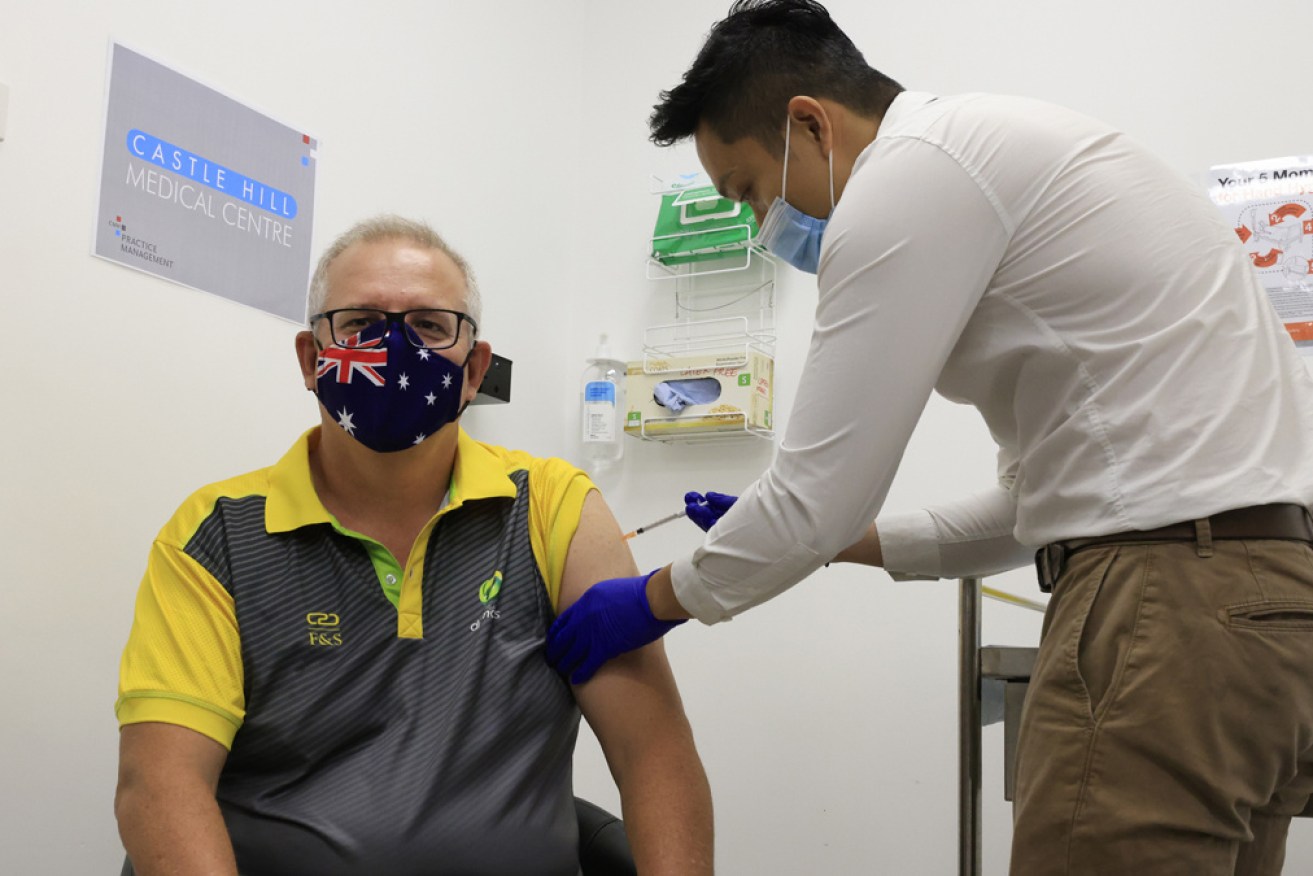Pfizer’s COVID-19 vaccine is less effective after six months, making ‘booster’ shot vital


More than 600,000 Australians, including Scott Morrison, have received a COVID-19 booster shot. Photo: Getty
The bad news is that two shots of Pfizer’s COVID-19 vaccine loses efficacy against infection and preventing symptomatic disease after just six months.
This is according to a statement from Pfizer and BioNTech based on “real world data released from the Israel Ministry of Health”.
That data is compelling. Israel’s health ministry said that the efficacy of Pfizer’s vaccine had dropped from more than 90 per cent to about 64 per cent following the spread of the Delta variant.
Just to be clear, we’re talking about a third jab here, which isn’t to be confused with the second shot required under standard treatment protocols for both AstraZeneca and Pfizer, sometimes also called ‘a booster’.
For a couple of months, the company has talked about need for a booster – a third jab of the vaccine known as BNT162b2 – but it’s only become clear how quickly the first two jabs lose protective steam.
Happily, though, two shots of Pfizer still do a great job of preventing serious illness and hospitalisation.
Also, the European Medicines Agency (EMA) has said there are no grounds yet for COVID-19 booster shots and US medicines and health authorities have advised vaccinated Americans they don’t need a third shot.
The good news?
The good news, according to Pfizer and BioNTech, is that a third jab of Pfizer – given six months after the second – effectively turbo-charges an immune response, producing levels of neutralising antibodies that are five to 10 times higher than what’s produced after two doses.
That’s according to early data not yet publicly scrutinised.
Pfizer says additional data and a peer-reviewed paper will be submitted to regulatory bodies, including the US Food and drug Administration and the European Medicines Agency, and presumably Australia’s Therapeutic Goods Administration.
This will occur in “the coming weeks” when the US FDA will be asked to grant emergency use authorisation of the third jab.
There is a need to get a wriggle on here – the year is slipping by and a significant number of people will soon be due for that third jab.
For Australia, where the rate of supply of the Pfizer vaccine is slow, the need for a timely third jab could prove to be one more headache for the federal government.
Or not. Things could pick up. That’s the plan.
Hedging their bets against the Delta variant
Pfizer and BioNTech believe “a third dose of BNT162b2 has the potential to preserve the highest levels of protective efficacy against all currently known variants including Delta”.
That would be great – but the companies aren’t taking this for granted.
For the sake of “remaining vigilant”, they’re developing an updated version of the BNT162b2 vaccine that targets the full spike protein of the Delta variant.
The first batch of the mRNA for the trial has already been manufactured – and clinical studies are set to begin in August, subject to regulatory approvals.








